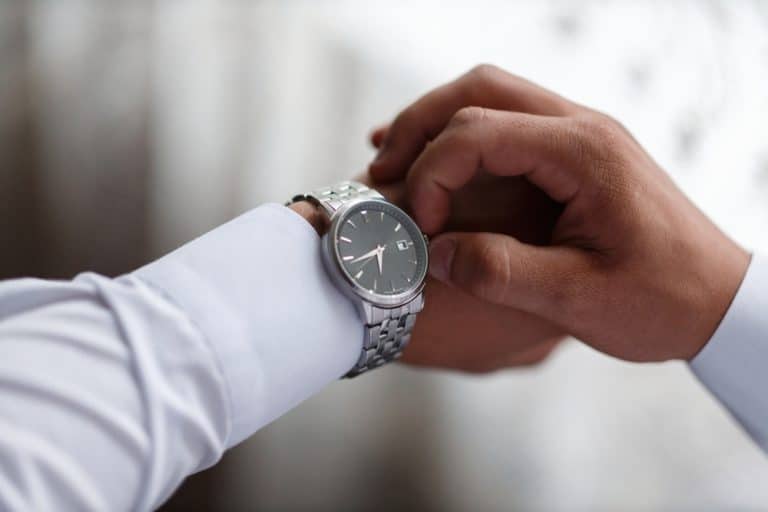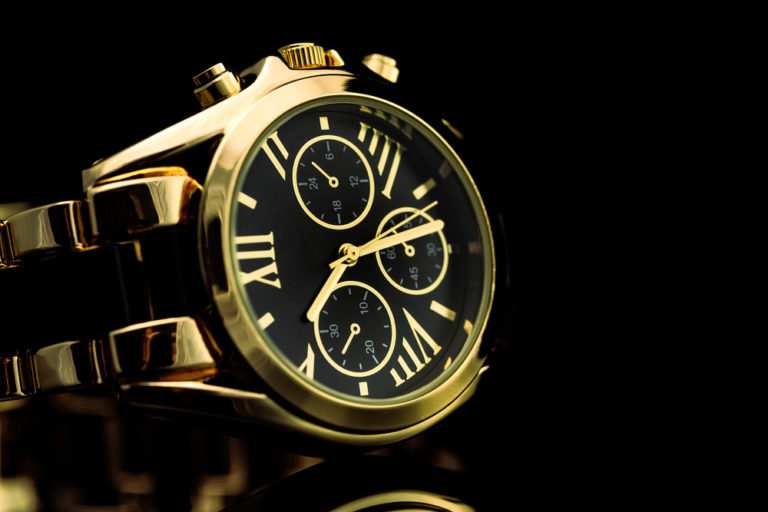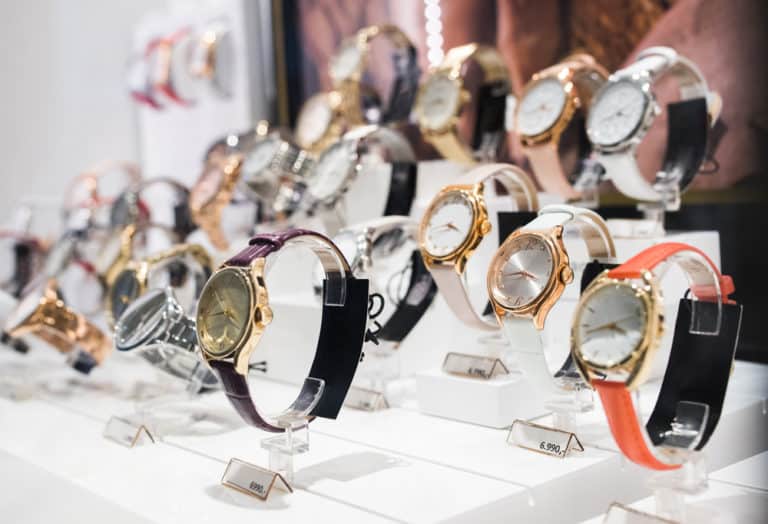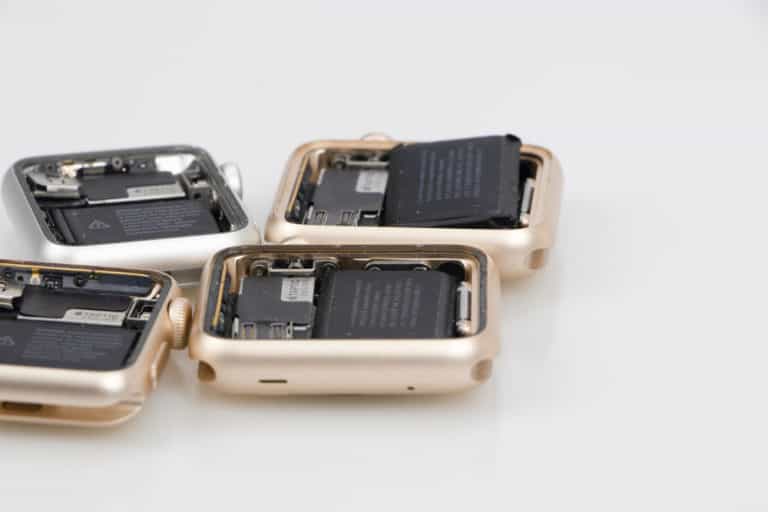Rotors are vital parts of any automatic watch, but these ingenious devices can get complex. Sometimes, these rotors can even start making strange noises, and nobody likes it when their watch does that. So, then, why is a watch rotor so loud?
Watch rotors are loud because the bearing inside them rattles. This component loosely connects to the rotor and winding mechanism, which means that the rotor’s parts will jostle against each other. Unless there is a scraping sound, this noise is typically harmless.
Now that we know why rotors produce noise, we can examine this topic in more detail and find out when this noise means that your watch is damaged. Read on to learn more about watch rotors and how they’re supposed to sound.
Why Do Watch Rotors Make Noise?
All automatic watches will make noise – that’s normal. These timepieces contain dozens of moving mechanical parts, so they cannot be silent. However, that doesn’t mean a loud noise is usual or desirable.
The best watches are seen, not heard.
The Rotor Spins
Typically, a watch’s noise comes from the rotor spinning around the case or the mainspring uncurling. Here, the noise should be quiet and sound like a fidget spinner.
If you can hear this whirring sound from across the room, consider taking your watch to a watchmaker. While you should be able to listen to this noise up close, it doesn’t need to be noticeable.
Your watch’s material and model also affect the loudness. High-quality watches use metals, glass, and plastics that shut out nearly all the noise, while cheaper watches are louder.
Similarly, the rotor’s quality also has an impact. Flimsy parts and soft metal inherently sound louder and run a higher risk of breaking down.
The Rotor Winds When You Move It
The rotor also spins whenever you move your arm or shake the watch. This movement winds an automatic watch (you must wind manual watches by turning the crown).
So, when the rotor spins, it’ll make noise. This movement rattles the bearing against the winding mechanism and the rotor, making a sound understandably. Depending on how sensitive your hearing is, aggressively moving your watch can be pretty loud.
Shaking your watch isn’t bad, either. Instead of winding an automatic watch before you put it on, you can shake it instead. Depending on the timepiece, doing so can start and fully wind it.
Although this can be noisy, that’s not a problem. When you shake a watch, you copy how your arm swings when you walk. Watchmakers design their automatic watches to wind up whenever they undergo that motion. So, it’s OK to shake a watch.
Don’t worry about damaging the components, though. Because automatic watches wind when you shake them around, their parts are durable enough to withstand that. They’re unlikely to wear out even if they rattle against each other.
Your Rotor Is Damaged
Unfortunately, sometimes your rotor is loud because it is damaged. You might have trouble if your automatic watch starts producing a scraping sound.
The rotor scraping can be a sign that its bearing is damaged. Likewise, this noise can also come from a loose screw inside the mechanism. If the screw keeping the rotor in place becomes lost, this part will scrape against the others.
If your watch has a transparent back, it is straightforward to check if you have this problem. Keep your eye out for a blackened circle surrounding the rotor. If that mark is there, you should take your watch to the watchmaker before the issue worsens.
Similarly, look for if the rotor is jammed or moves too freely.
However, many watches don’t have display case backs. Nevertheless, there’re still a few ways to check if your rotor is loose.
The easiest way to ensure your rotor is damaged is to check if your watch stops at night. Standard automatic watches have a power reserve of between one and three days. So, if your watch stops every few hours, it might signal that it doesn’t wind properly because the rotor broke.
You can also open the case back and check. To do so, you’ll need a screwdriver and a case-opening tool. Remember to follow the watchmaker’s instructions, though. You won’t want to damage your watch further.
You can still be more confident even if you don’t see a blackened circle or visibly maligned parts. Gently press on the rotor and spin it. If it wobbles or scrapes, then it’s loose.

Other Parts Of The Watch Make Noise, Too
Sometimes, you might confuse the rotor’s noise for another component. Although mechanical watches shouldn’t be too audible, that doesn’t mean they’re silent.
These timepieces will tick, hiss, and grind depending on the circumstances. That’s normal.
Remember that mechanical watches don’t tick once per second (although the second hand must move once per second regardless). Instead, these timepieces tick between four and six times per second.
Because of that, don’t mistake the rotor for this “tick, tick, tick” sound. While this sound might be unfamiliar if you’re new to the world of mechanical watches, it’s unremarkable and a sign that your device works correctly.
Not only that, but your watch might also hiss occasionally. It hasn’t got a snake trapped inside it; we promise.
That hissing comes from the mainspring’s slip-clutch mechanism. This little tool stops overwinding, which could otherwise break your timepiece.
Overwinding occurs when you wind the watch too much, compressing too much energy into the mainspring. If you do that, you risk bending the mainspring past a healthy point and snapping it.
Fortunately, the slip-clutch prevents that. After you build up too much torque in the mainspring, the slip-clutch engages and unwinds the spring back to a safe level. As these springs move, they scrape against the barrel wall and hiss.
Last, your watch might also make a grinding noise. That isn’t your rotor, either. Instead, that sound comes from winding your watch using the crown. This crunchy, scraping noise can worry some people, but it is unremarkable.
This noise comes from the watch’s gear train all moving simultaneously. Unless this noise is loud or the crown is stuck, there’s no issue. You can’t hear this noise while wearing the watch because the movement is far slower and in the opposite direction.
Conclusion
It isn’t an issue if you can hear your mechanical watch. Along with other components, the rotor naturally spins and makes a subtle whirring or rattling noise. However, if it starts to scrape or rattle too loudly, then it might be damaged.







